Ceramides. This term pops up on cosmetic product packaging, in beauty commercials, and pretty much anywhere you see skincare. Touted as an ingredient you definitely want in your serum or moisturizer, what are ceramides for skin and where do they come from?
Natural Ceramides and Sensitive Skin
Are ceramides safe and natural (or at least naturally based)? And are they good for sensitive skin?
The answer is yes to both these questions.
What are ceramides and are they natural?
Ceramides are sphingolipids. Sphingolipids are long-chain fatty acids with a fun, tongue-twister name. Ceramides are specifically found in the stratum corneum, the skin’s outermost layer. About 50% of your skin's oil content is ceramides, and they are very important. About 25% of the remaining lipid content is cholesterol and 15% is free fatty acids.
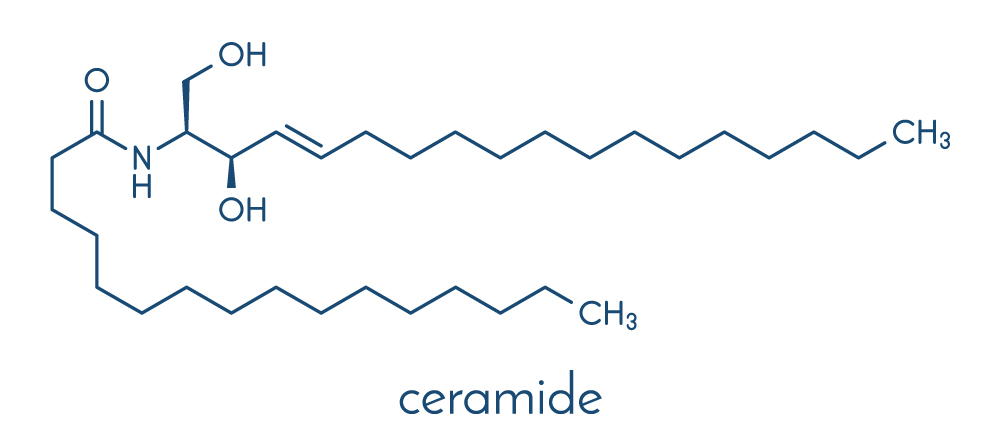
Ceramides have a big role to play in keeping the skin barrier functioning properly. The skin barrier acts like a wall of protection for the skin and a healthy skin barrier means you are less likely to experience skin issues, like dryness, eczema, inflammation, acne, and environmental stress. A healthy, robust skin barrier with enough ceramides keeps hydration in and irritants out.
Ceramides are also a type of skincare ingredient. They can be completely synthetically made in a lab, or they can be plant-derived. The completely synthetic ceramides are usually made to be identical to ceramides made by the skin itself.
Where do ceramides come from?
Ideally your skin will be able to DIY its own ceramides. Ceramides are made in your skin cells as they grow and mature. As they mature your cells start to flatten to become the protective layer of cells at your skin's surface. When this happens the lipids inside the cells are ejected and become the extracellular matrix - a type of oil based structure that acts like the mortar to hold the corneocyte skin cells together.
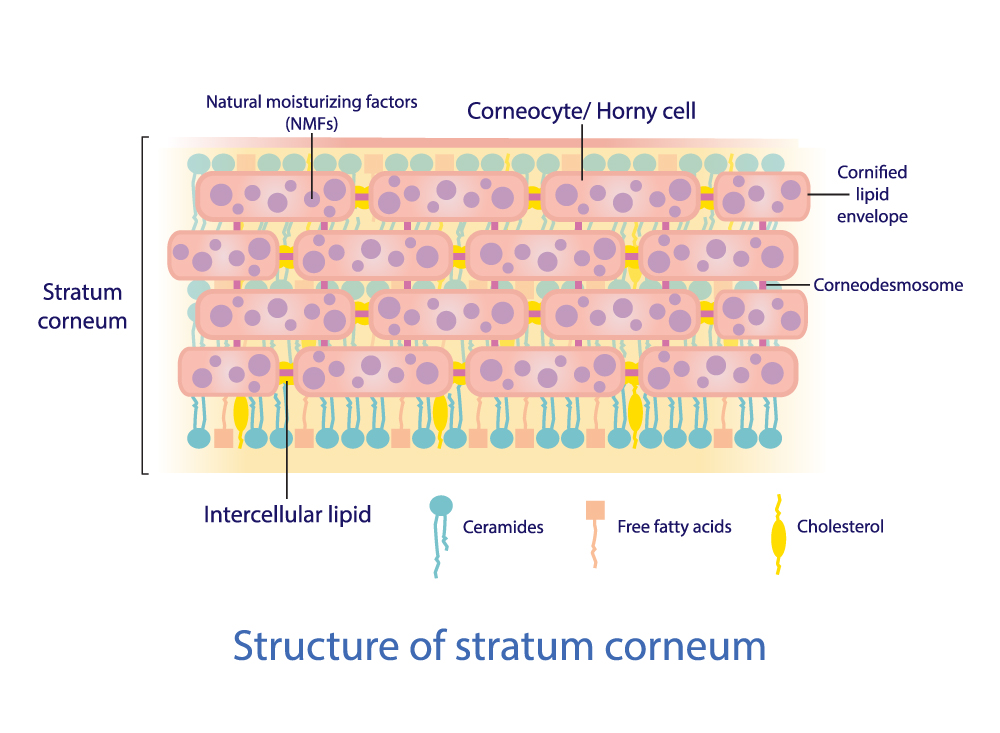
Some people may have trouble making their own ceramides due to genetics, inflammation, or aging. Ceramide levels being too low can cause faster moisture loss from the skin. You'll feel that as uncomfortable dryness in your skin. Low ceramide levels can also make skin more prone to irritation since chemicals and allergens can more easily penetrate the skin and interact with the immune system.
If your skin isn't making enough ceramides of its own you can add more through skincare, or use skincare that will help your cells enhance ceramide production.
Common ceramides in skin care products
Synthetic ceramides that will show up in your skincare ingredient lists are made from combining different fatty acids with sphingosine.
Common synthetic ceramides available for use in skincare products are:
- Ceramide 1
- Ceramide 1 A
- Ceramide 2
- Ceramide 3
- Ceramide 4
- Ceramide 5
- Ceramide 6 II
- Ceramide AG
- Ceramide AP
- Ceramide AS
- Ceramide EOS
- Ceramide EOP
- Ceramide NG
- Ceramide NP
- Ceramide NS
Are there natural ceramides for skin?
There are also ceramides that can be made using fatty acids from botanical oils. These are called phytoceramides. They may be harder to spot in skincare products as they are less commonly used, but they can have bigger benefits than ceramides that don't come from plants.
According to research published in Clinical, Cosmetic and Investigational Dermatology, phytoceramides created from from plant fatty acid sources such as shea butter, sunflower oil, and a mixture of macadamia nut, shea butter, moringa, and meadowfoam seed oil showed better improvements to the skin vs the synthetic ceramide NP. The phytoceramides created visible improvement in damage to the stratum corneum as well as creating enhanced skin hydration levels. There also seems to be a difference in benefit depending on the specific fatty acids used, and the plant sources they came from.
A few grains have ceramide compounds in them that can be extracted and used on skin without further alteration. Rice, wheat, and corn can all provide natural ceramide compounds.
In one study published in 2007 rice bran based ceramides were found to increase the skin's hydration level over 3 weeks of use when compared to placebo. Rice ceramides have also shown other unexpected benefits in studies like brightening pigmentation and enhancing the activity of skin's structural cells.
Yeast has also been bred to be able to make ceramides. In a study from 2015 yeast was able to make human ceramide NS.
Some botanical ingredients in skin care products like herb extracts, essential oils, and carrier oils can also support the natural production of your own ceramides in the skin. Even though these ingredients don't directly supplement skin with ceramides
botanical skin care ingredients can increase your ceramide levels, sometimes within 24 hours or just a few days of use.
What are the benefits of ceramides for skin?
The skin's natural protection and repair abilities can be impaired anytime skin is not protected well with the right lipids and hydration.
When the skin experiences chronic dryness and irritation there is ongoing inflammation. That chronic inflammation can prevent the proper repair and protection of your cells. This can cause damage to build up more quickly, making your skin look stressed, and age skin at a faster rate than healthy skin.
Imagine if you slept really poorly last night, there was construction on the way to work that made you 30 minutes late to an important meeting, you didn't have time to pack lunch, and then your boss at work gives you an extra project. You're poorly prepared to handle the stress and effort, your thinking isn't clear, and it can feel impossible to handle it.

Conversely if you got a full 8 hours of sleep, the drive to work was clear and speedy, and you had a great breakfast and lunch you are much better prepared for the challenges of the day. Finding solutions to problems feels much easier when you are well-resourced.
Similarly your skin needs to be prepared and well-resourced to handle its job too. Keeping your barrier strong can empower your skin to handle daily damage and repair itself quickly so you stay looking healthy and happy.
Including ceramides in your skin care plan can be a big help. Ceramides have actually been found to contribute to proper signaling of your immune system within the skin, and can help your skin defend itself.
Using skincare products that contain ceramides may help to reduce the appearance of sun damage in the skin. A 2021 study published in the Journal of Drugs in Dermatology found that using a sunscreen made with ceramides and a ceramides moisturizer visibly reduced redness and hyperpigmentation, and made skin feel more hydrated.
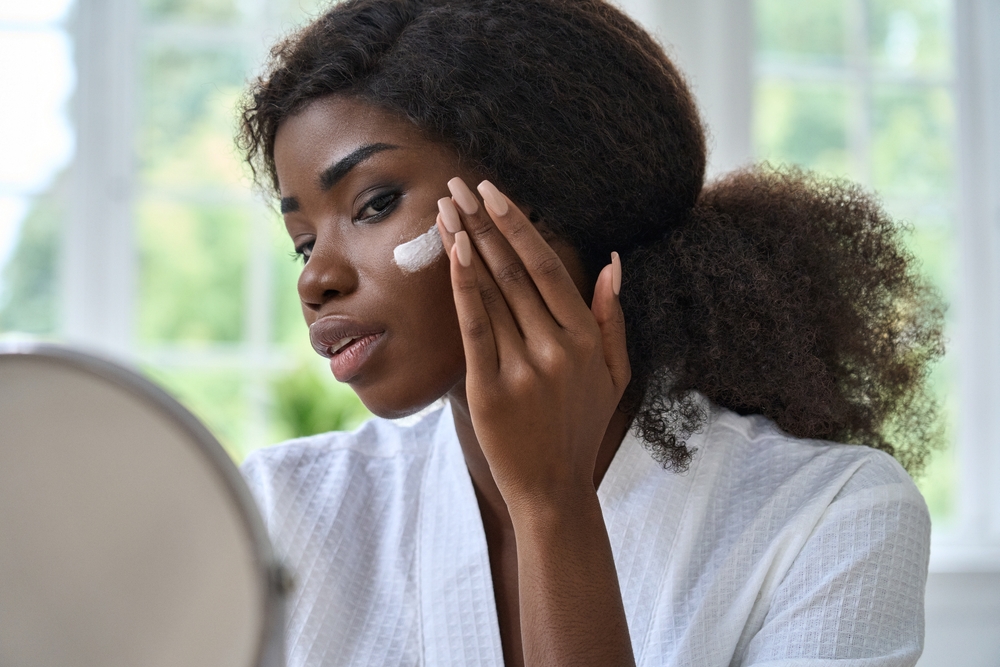
Are ceramides good for sensitive skin and chronic skin problems?
Because ceramides support the skin barrier they are good for all skin types including sensitive skin and chronic skin problems like rosacea, eczema, psoriasis, acne, and extreme dryness.
Luckily the synthetic ceramides used as skin care ingredients don't carry added preservatives because they are oil based and don't need them. This means you're not getting any hidden irritants carried into your products from the ceramides.
Synthetic ceramides are very mild and non-irritating and made to match the types of molecules your own skin makes.
People with sensitive skin or skin problems still need to read the rest of the ingredients list, though. Many conventional skincare companies do use ceramides and while the ceramides are fine the rest of the recipe may carry surfactants, penetration enhancers, and preservatives your skin will not love. Ceramides are not enough to counter irritation from other ingredients. Make sure to shop for ceramide skin care products from a company you really trust.
If you want to go the natural route we'll share some herbal skin care ingredients that can help boost ceramides in your skin.
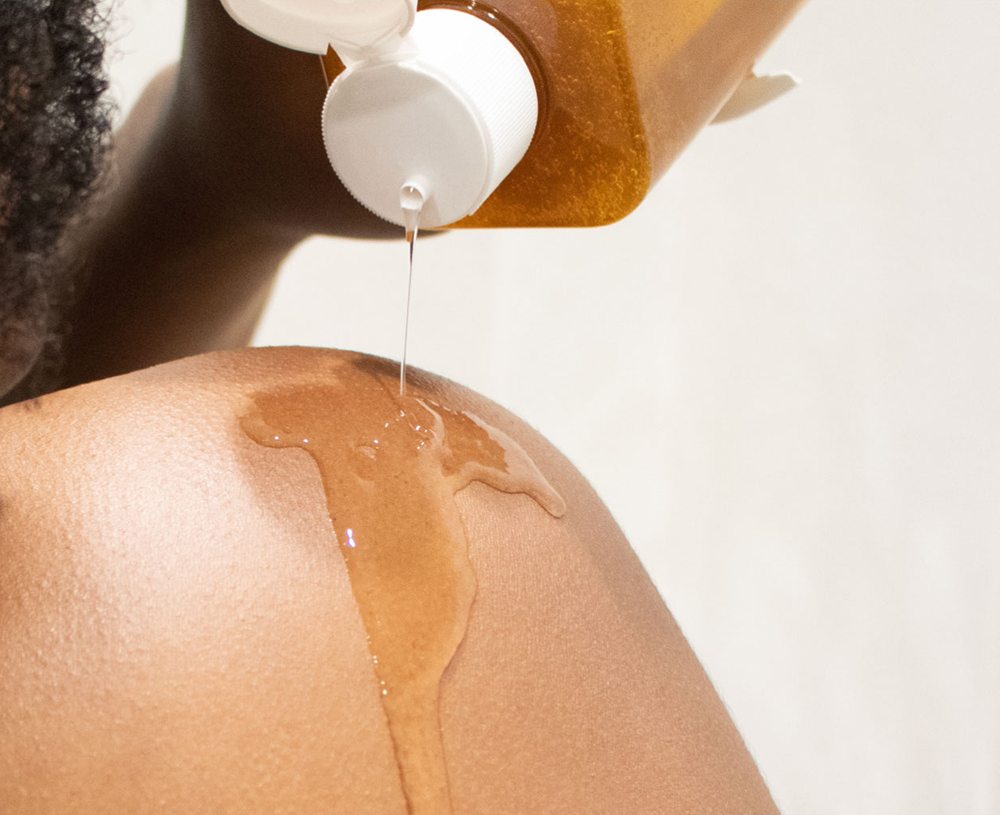
Why do you need skin care that increases ceramides in skin?
Since your skin already has ceramides you might wonder why you would want to add more through skin care.
Your own ceramide production could suffer if you deal with chronic inflammation in your skin from eczema, psoriasis, acne, or if you are over the age of 40.
Ceramides made by skin that has psoriasis, eczema, and acne were found to be altered in their structure, types, and quantities. This contributes to the skin barrier not functioning well.
People with acne might think they don't need any more oils in their skin, but you do need the right kinds of oils! Skin with acne may feel oily, but it is often actually dehydrated due to barrier problems and drying acne medications. A study from 2015 found that use of mild skincare products containing ceramides was able to reduce acne lesions while improving hydration and boosting levels of longer chain ceramides, which is better for the skin health.
Changing seasons can also play a part in how much you might need to work on your skin's ceramide levels. Winter weather can decrease your natural ceramide production just when you need them most!
How to get ceramides naturally and boost your skin's ceramide production
A natural ingredient that can make skin look and feel hydrated and balanced? Bring it on! But before you search for ceramides cream or ceramides serum, there’s a bit more to the story.
Some natural skincare ingredients can boost the ceramide levels in your skin even though they don't have ceramides in them! This is because of the protective and restorative properties botanical ingredients offer to skin.
Let’s start first with the simplest one - botanical base oils. Application of plant oils to the skin has been found to increase the skin’s lipid content in a variety of ways.
One study from June 2023 found that a gently acidic cream containing 2 botanical oils substantially increased lipids including ceramides in the stratum corneum over 22 days.
All the 3 major lipid components of the skin barrier (fatty acids, cholesterol, and ceramides) were substantially improved for most study subjects. Since plant oils don’t directly provide cholesterol and ceramides it is clear that the cream prompted enhanced natural production of ceramides and cholesterol by the skin itself.
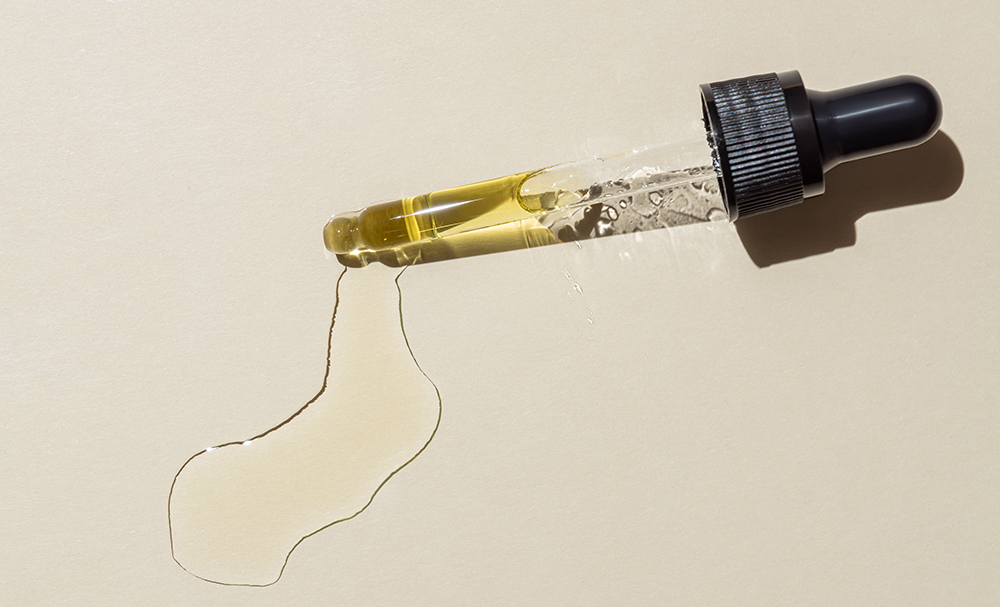
Linoleic fatty acid plays a major role in the formation of ceramides in the skin, and this is a fatty acid that can be found in many botanical carrier oils like evening primrose oil, grapeseed oil, blackberry seed oil, hemp seed oil, sunflower oil, and sesame oil. A deficiency of linoleic fatty acid in the skin will cause improper formation of ceramide 1 (or ceramide EOS), one of the skin's own ceramides, so seeking out oils that contain this valuable compound will help get skin back on track. Your favorite natural facial oil can be a big help!
Vitamins and nutrients that boost ceramide production
Niacinamide is one of our favorite naturally based ingredients for skin health, and it can give skin a serious boost in ceramide production. One study documented a 5 times increase in ceramide production in skin cells when using niacinamide!
Even modest levels of niacinamide can be a big help to skin. Several studies have shown substantial improvements to skin barrier function, ceramide levels, and transepidermal water loss using just 2% niacinamide in skin care products.
A 2% niacinamide cream was used on people with stage 1 and 2 rosacea for 4 weeks. 95.7% of study subjects had substantial improvements in their skin's barrier function due to the niacinamide by the completion of the study.
Vitamin C is a perennial favorite for its many skin benefits. Now you can add a boost in ceramide production to that list of things to love about Vitamin C.
One study found that Vitamin C boosted skin cell production of 5 different types of ceramides plus glucosylceramides and other sphingolipids! Vitamin C is able to help increase ceramides in skin by boosting the activity of enzymes that contribute to their formation, so make sure a Vitamin C serum is part of your ceramide boosting skin care routine.
More plants that can help skin's ceramide levels
Oat oil extract has been shown to improve symptoms of dry skin including roughness, scaliness, and itching, and improve TEWL and moisturization in those with dry skin. This oil was also shown to upregulate ceramide synthesis by supporting the skin barrier function. Another study published by Experimental Dermatology stated that oat oil used on the skin increased ceramide levels by 70%!
Ursolic acid is an oily triterpenoid compound found in many plants. You might not see ursolic acid mentioned individually on your product labels, but herb extracts can carry it. One study found that ursolic acid can increase ceramide and collagen production in skin cells.
You can find ursolic acid in plants such as uva ursi leaves, plantain leaves, eucalyptus leaves and bark, lavender leaves and flowers, apple fruit peel, cranberry fruit oils, lemon balm leaves, rosemary leaves, and sage leaves.
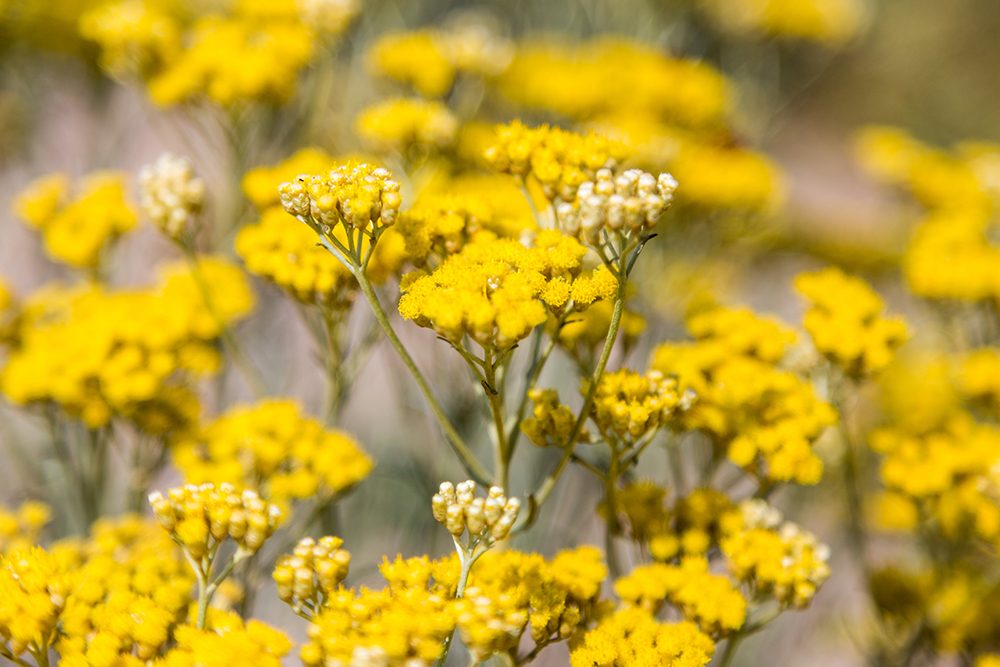
Helichrysum essential oil, raspberry leaf extract, gentian root extract, and astragalus extract are all herbal ingredients that have been directly shown to improve ceramide levels in skin. They all work in different ways to help the skin since their chemistry is all very different.
As you can see, supporting your skin’s natural ceramide levels doesn’t have to mean synthetic skincare creams. You can get these ceramides benefits through natural ingredients. There are other ways to keep your skin barrier healthy and moisturized that you may want to utilize, as well. Read our article to learn about more herbs that help keep your barrier intact and moisturize your skin.
A strong skin barrier means healthy, happy skin. We hope you nurture your skin with some of these great ingredient choices and see big benefits!
Disclaimer: The information contained on this site is general in nature and for informational purposes. It is not meant to substitute for the advice provided by your own physician or other medical professional. None of the statements on this site are a recommendation as to how to treat any particular disease or health-related condition. If you suspect you have a disease or health-related condition of any kind, you should contact your health care professional immediately. Please read all product packaging carefully and consult with a healthcare professional before starting any diet, exercise, supplementation or medication program. Cosmetic products have not been evaluated by the Food and Drug Administration and are not intended to diagnose, treat, cure, or prevent disease.


